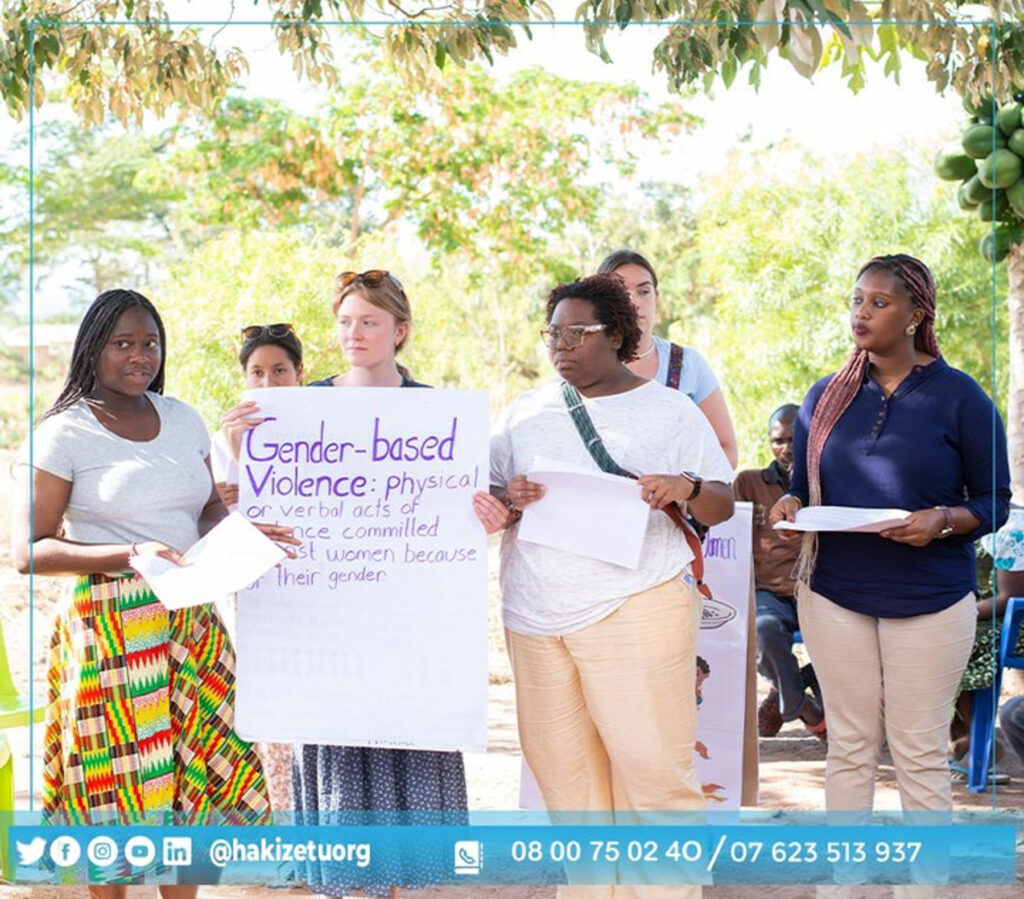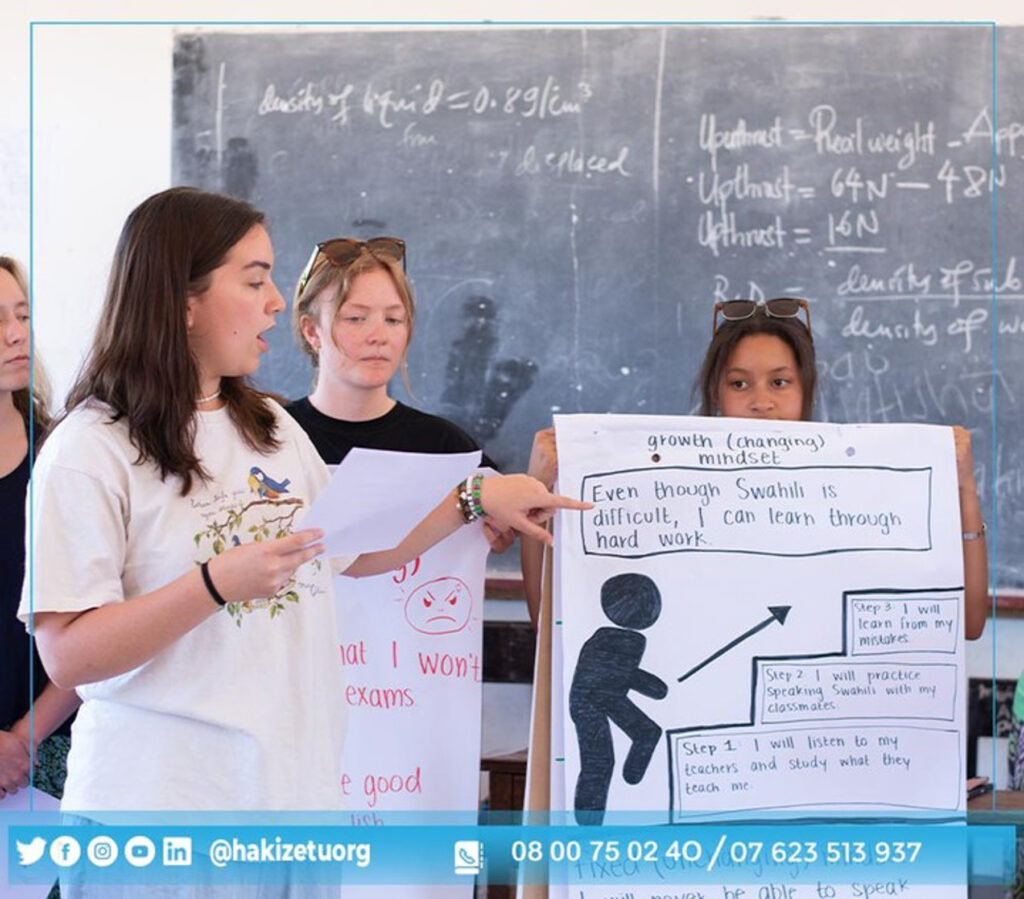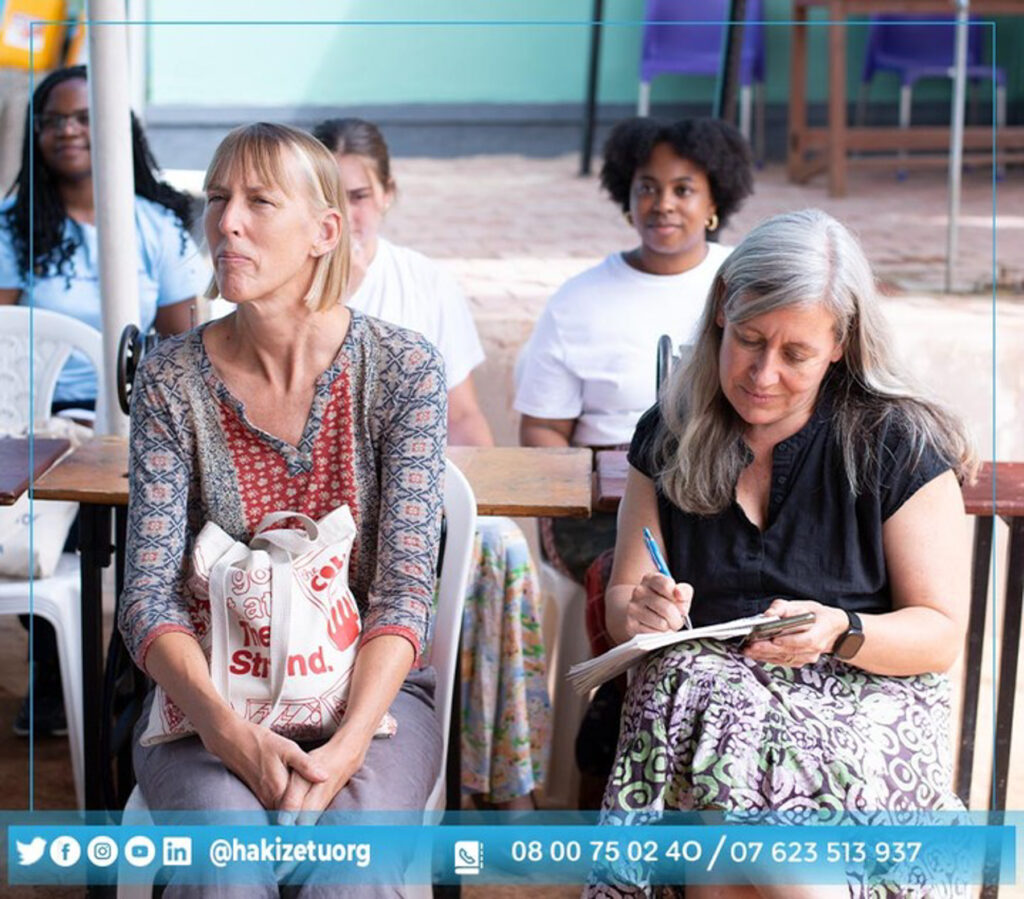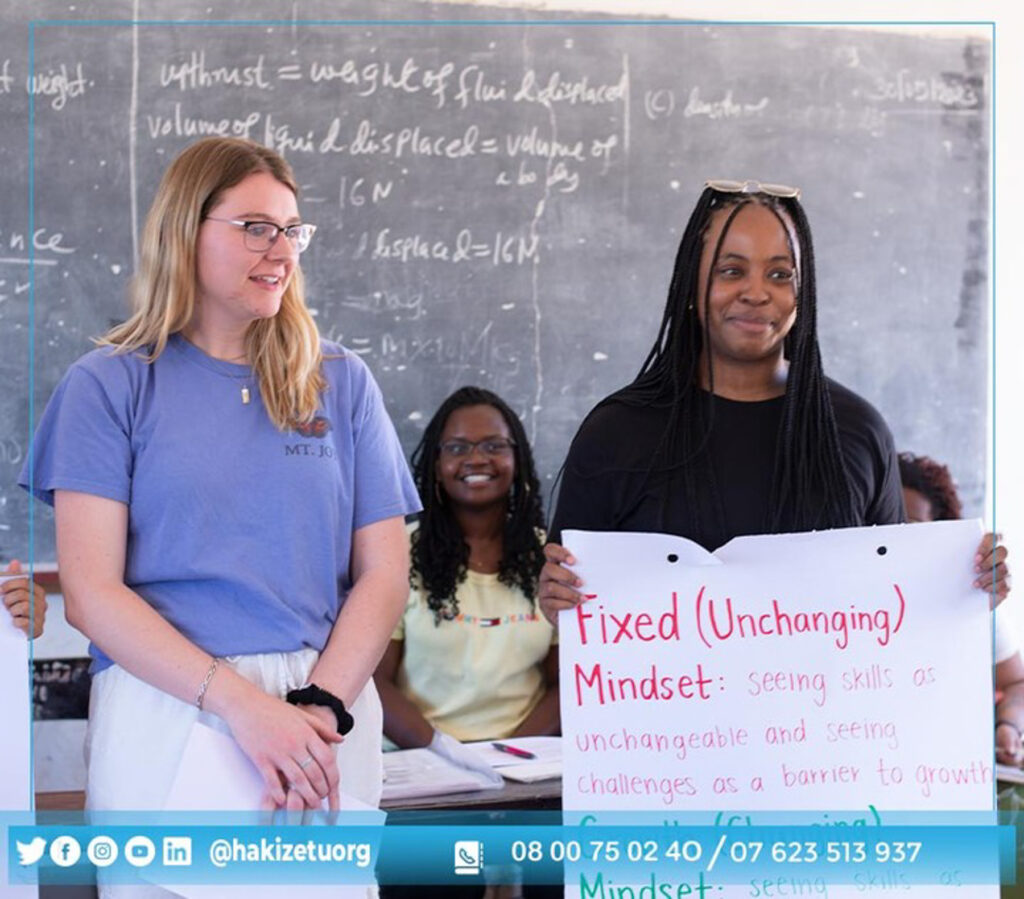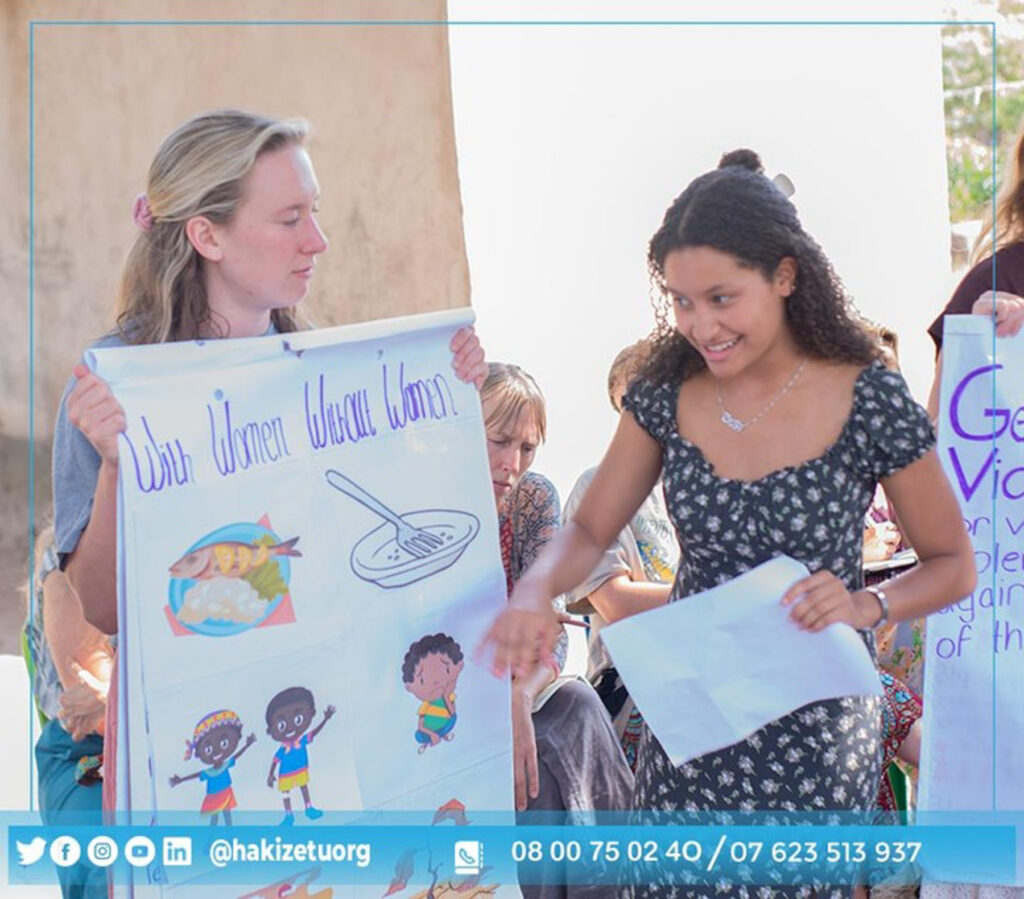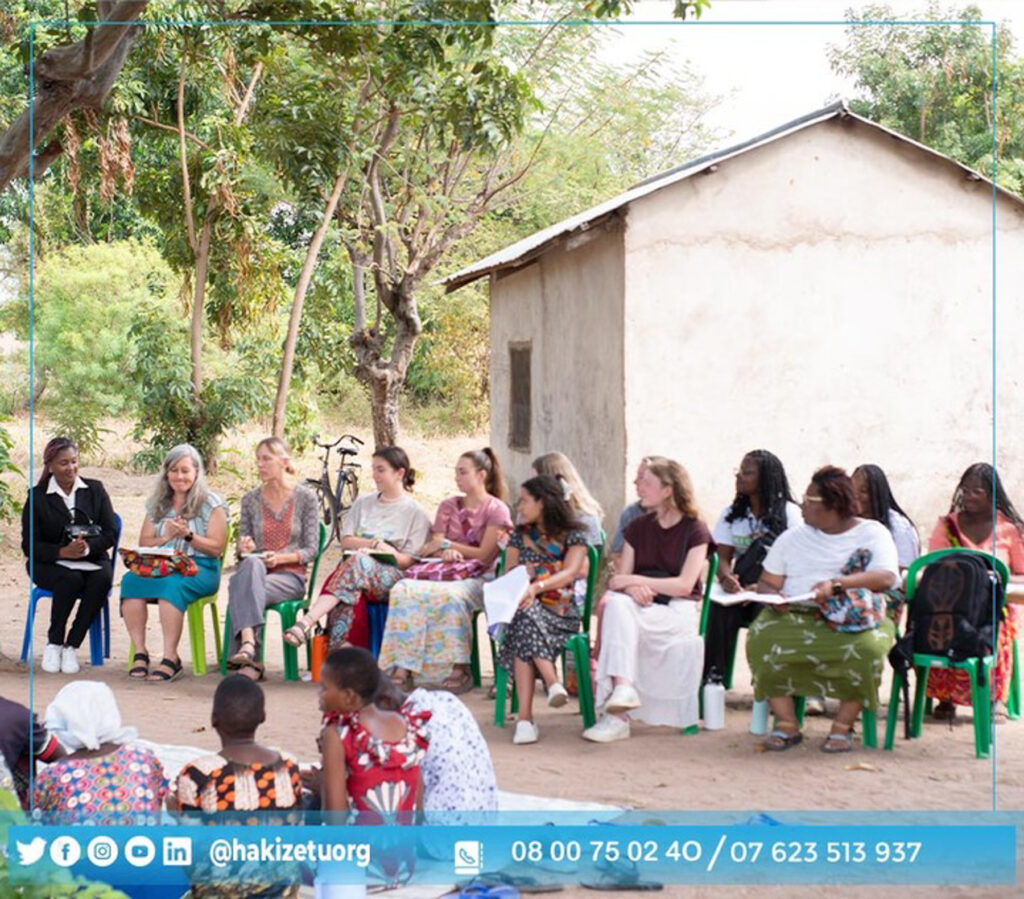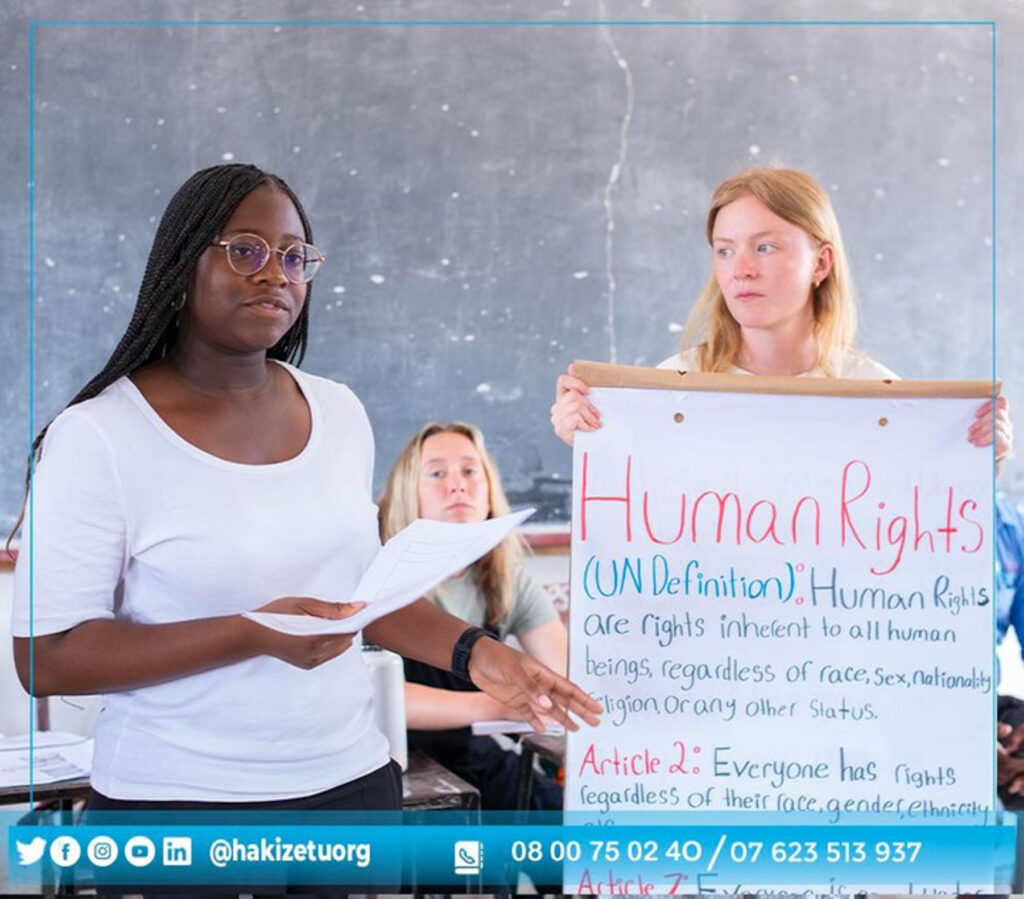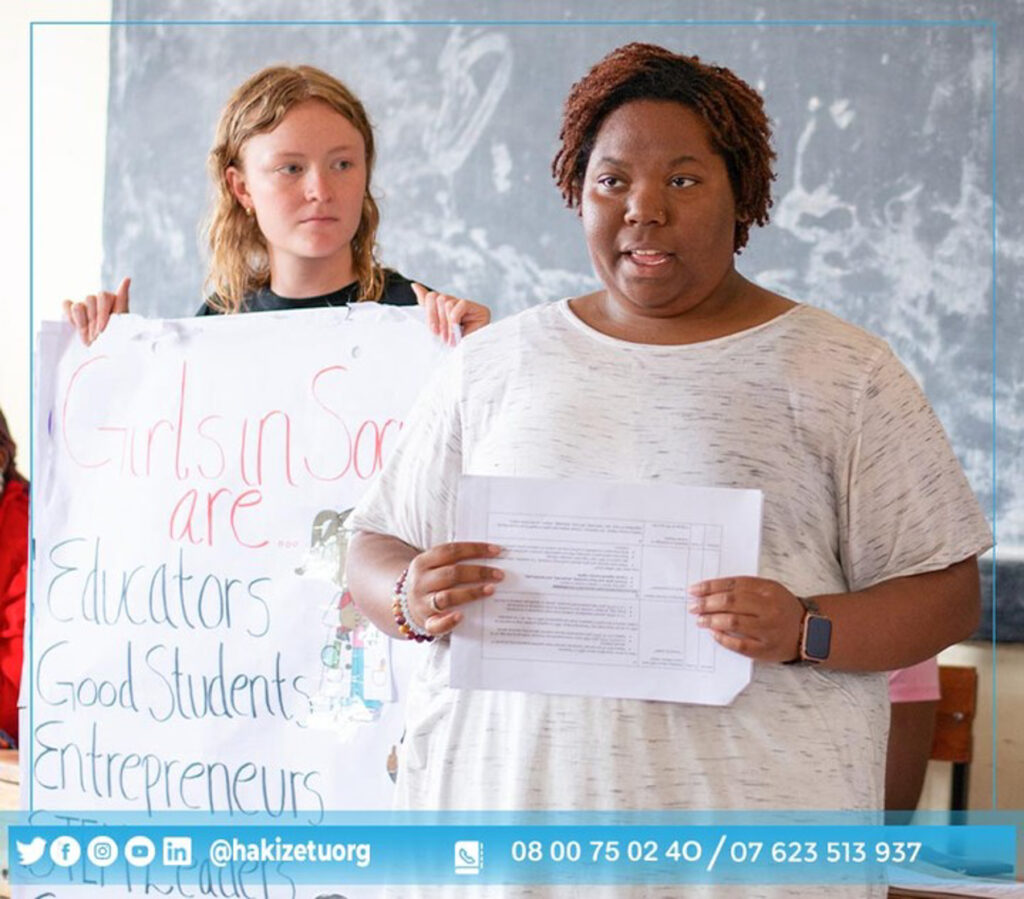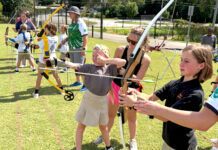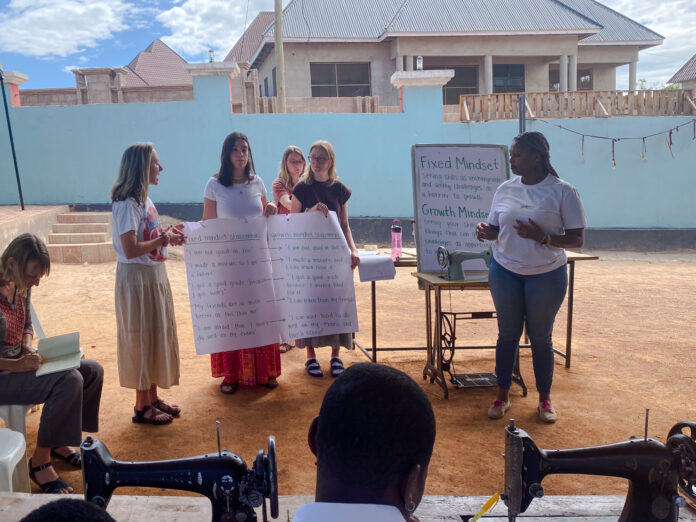
A Mercer University team traveled to Tanzania for three weeks this summer as part of a Mercer On Mission program focused on reducing violence against women in the east African country.
In partnership with Hakizetu, a Tanzanian nongovernmental organization that works to empower women, two faculty members and 10 students developed and piloted a secondary school curriculum aimed at reducing gender-based violence. The curriculum also may be adapted for other audiences.
“We try to develop with our students a curriculum for an NGO that they wouldn’t have without us. That’s our goal,” said Dr. Amy Nichols-Belo, associate professor of global health studies and anthropology, who led the program with Dr. Natalie Bourdon, associate professor of anthropology and women’s and gender studies.
The curriculum featured three main modules: mindset transformation, in which participants were encouraged to adopt a growth mindset to help overcome challenges; leadership, in which participants were taught how to be good leaders and inspire positive change; and human rights and gender-based violence, in which participants learned the consequences of gender-based violence on women and society and explored the issue of women’s rights.
“I enjoyed the work we were doing,” said Aaliyah Deen Sesay, a rising senior majoring in global health studies. “I liked researching and formulating lesson plans, and I enjoyed presenting them and sharing my knowledge with others.”
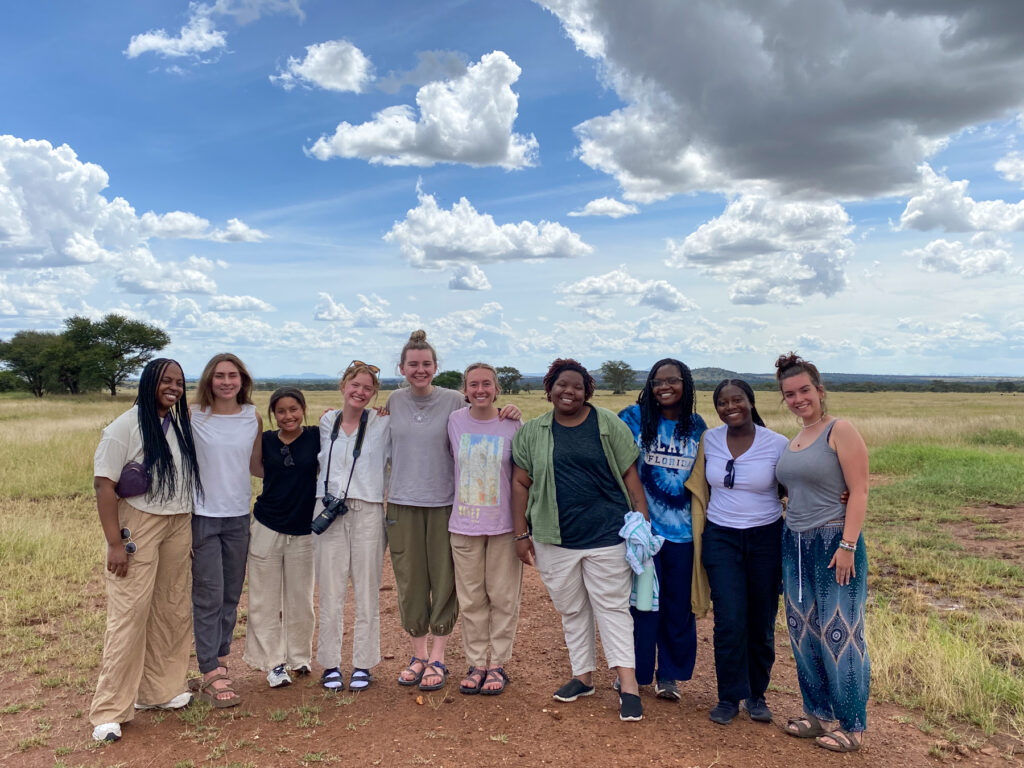
Deen Sesay said she was particularly interested in the trip after taking a health and gender class, in which she learned that women’s rights were not as secure as she thought.
“I recognized that when women are denied their human rights, whether in Tanzania or anywhere else in the world, everyone is harmed,” she said. “My desire to improve outcomes for women through empowerment and education was another one of the main driving forces for my participation in the program.”
Mercer students presented lessons in two urban secondary schools and two rural community groups.
“When we went to the secondary schools, they latched on to it immediately and really got it. You could tell they got pretty excited about it and liked to ask questions,” said Sydney Logan, a rising junior majoring in nursing. “But when we went to the more rural areas, gender-based violence was pretty normalized. Men were vocal and comfortable talking about how they discipline their wives with physical or verbal violence.”
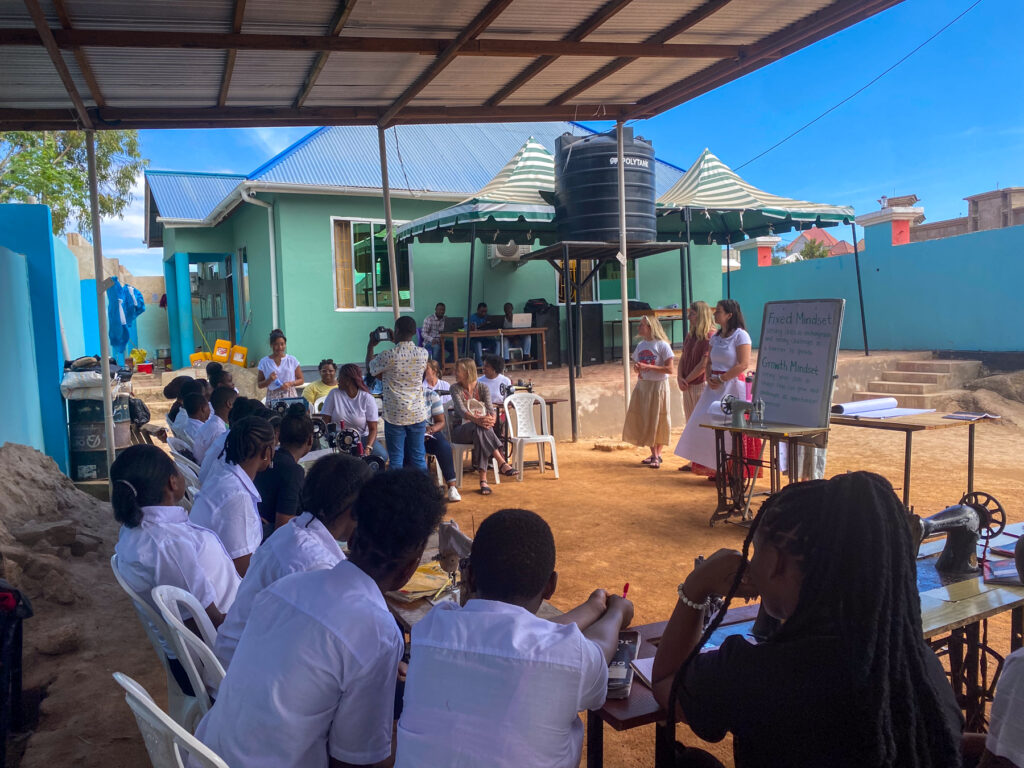
Students grappled with how to present the material to the rural community groups in a culturally sensitive way.
“We were all really baffled and taken aback, and I think when we were in the moment, it really shocked us. And then at dinner later that night when it was just our group and our professors, we had to talk about it in a level-headed way,” Logan said. “I wanted to be angry and annoyed at it, and I had to realize that an angry approach wasn’t going to fix the problem.”
As a result, students adapted the curriculum to explain how hurting women harms the whole family, Dr. Bourdon said.
“Our students took on some of those conversations and presented them back to the community in very utilitarian ways, which is one of the good avenues for convincing people that they shouldn’t abuse others,” she said.
Logan said the experience taught her to enter conversations without judgement, and it’s a lesson she’ll take with her when she becomes a nurse working in women’s health.
Lucy Marsden, a rising senior majoring in psychology, recalled the moment she realized they were making a difference. She had just shared with the Tanzanian students that the players on the U.S. women’s national soccer team were her role models because they never stopped fighting for equal treatment.
“When the lesson ended, one of the students came up to me to ask me if I was a coach because she loved football and wanted to play,” Marsden recalled. “I think it stuck with me because it was a direct example of how our work was impacting the students. When you aren’t doing something that can be measured quantifiably, it is harder to see direct results.
“That student approaching me reaffirmed to me that the work we were doing is so important and can inspire real change.”
Dr. Bourdon and Dr. Nichols-Belo both have been working in Tanzania for more than two decades and speak Swahili, the country’s official language. Prior to the trip, they taught students basic Swahili, so they would be able to greet people, understand basic concepts and shop. Students also learned about Tanzanian history, human rights and women’s rights, Tanzanian educational policy, previous sexual and reproductive health interventions in Tanzania, and the problems of gender-based violence and sexual harassment in Tanzania.
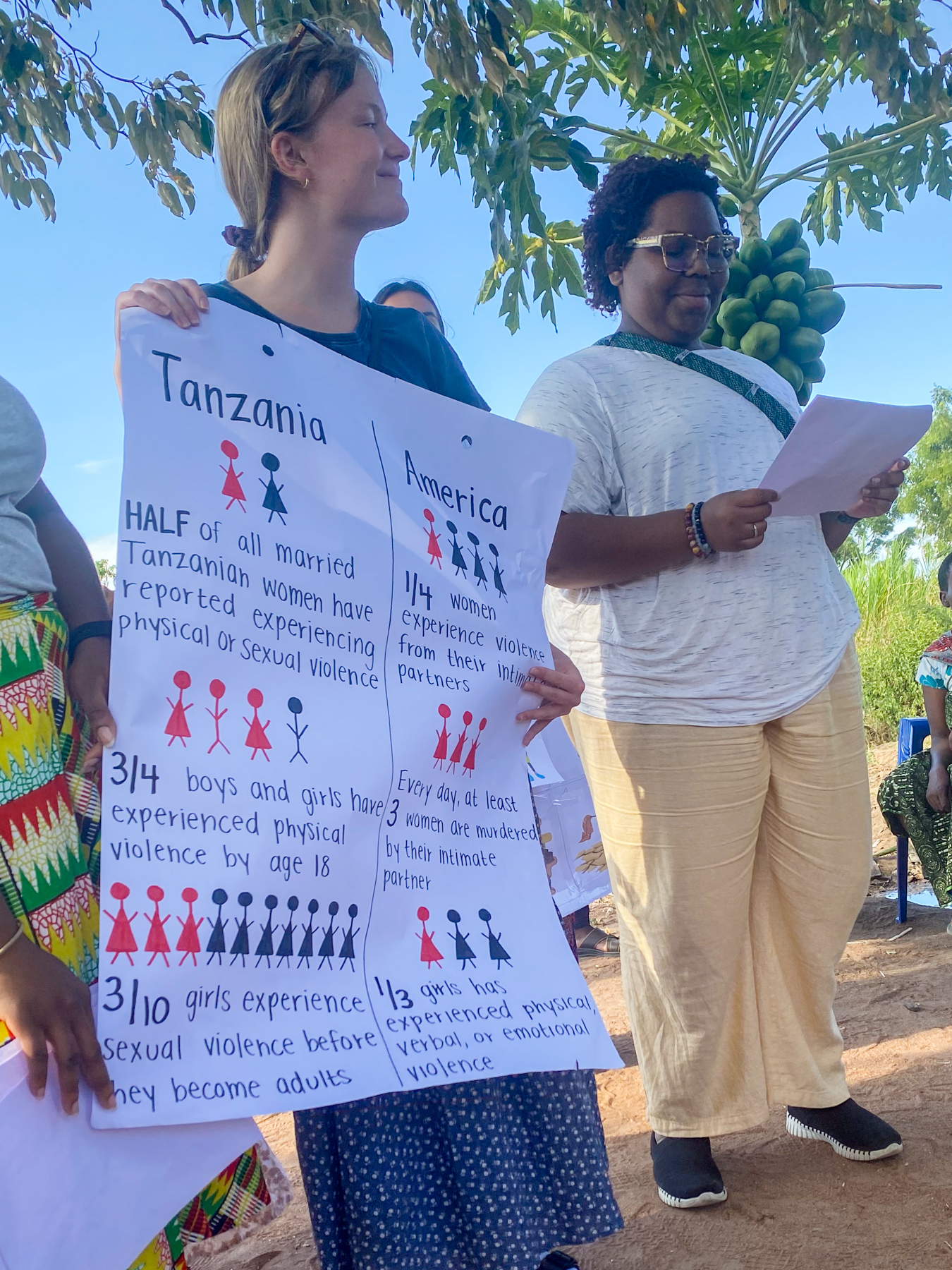
In Tanzania, 50% of married women experience physical or sexual violence, according to the 2010 Tanzanian Demographic and Health Survey. In addition, 75% of boys and girls endure physical violence by age 19, and 30% of girls experience sexual violence before they become adults, the survey shows.
Acknowledging that gender-based violence also occurs in America helped the students establish credibility when presenting their curriculum, said Latoya Bartley, a rising sophomore double-majoring in history and anthropology.
“We let them know that it happens here too, and it isn’t something that’s just endemic to Tanzania,” she said. “I think that really just took it from being, ‘We’re preaching at you,’ to ‘This happens to us too, and it’s not right.’”
Bartley said she enjoyed being able to interact with Tanzanians in their native language and learning about their culture.
“People in other parts of the world do things differently. That doesn’t mean that it’s wrong. Of course, gender-based violence is wrong, but talking about other cultural aspects, it’s not wrong just because someone does it differently, and it’s not OK to view people as inferior just because it’s not what you’re used to seeing.”
She said the Mercer On Mission trip contributed to her interest in activist work.
“I got to see how rewarding it is to make some sort of impact. Now, of course we didn’t fix everything, but being able to contribute something and educate myself on the issue was very fulfilling and rewarding,” she said.
Deen Sesay said she learned about cultural relativism, working collaboratively with others, and how to make complex information digestible.
“But I think the most important thing I learned is that even as an individual, I can make a change,” she said. “One of the students told us that we inspired her just by being ourselves, and it really helped me see that my ordinary is someone else’s extraordinary — and vice versa.”
